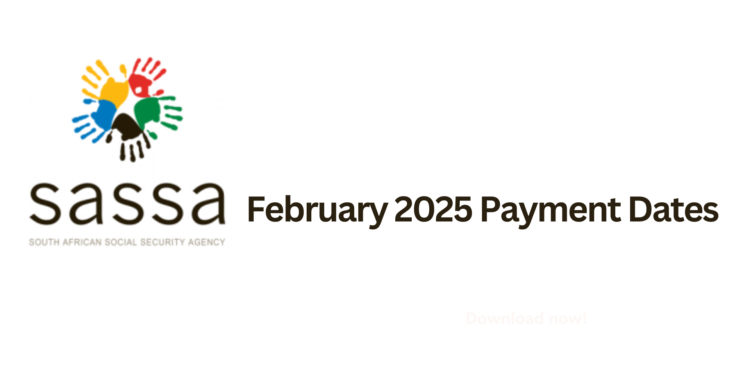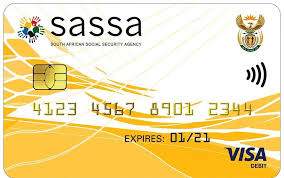In these challenging times, knowing when your financial support will arrive can make a world of difference to people relying on it. With the South African Social Security Agency (SASSA) facilitating vital grants, staying informed about payment dates and sassa status is key to managing your household budget.
This article outlines the payment schedule for the R370 grant for February 2025. It provides essential information on how to access these funds, including keeping track of your grant payment applications and performing a status check.
Whether you rely on these payments for daily necessities or are simply looking to plan ahead, understanding SASSA’s payment timeline can help reduce stress and improve your financial planning.
The South African Social Security Agency (SASSA) has confirmed grant payment dates for February 2025:
- Older Persons Grant: Tuesday, 4 February 2025
- Disability Grant: Wednesday, 5 February 2025
- Child Grant: Thursday, 6 February 2025
Payments for the R370 Social Relief of Distress (SRD) Grant will be processed between 22 and 28 February.

SASSA R370 Payment Schedule for February 2025
The scheduled payments begin with the Old Age Grant on February 3 and move through to other crucial grants like the Disability Grant and Care Dependency Grant on February 4. Following closely, the Child Support Grant and Foster Child Grant will be disbursed together starting on February 6. This structured approach by SASSA speaks volumes about their commitment to timely disbursement—beneficiaries are not left guessing when funds will arrive.
Key Payments Timeline:
Key Payments Timeline:
| Grant | Payment Date |
|---|---|
| Old Age Grant | February 3, 2025 |
| Disability Grant | February 4, 2025 |
| Care Dependency Grant | February 4, 2025 |
| Child Support Grant | February 6, 2025 |
| Foster Child Grant | February 6, 2025 |
| R370 Grant | February 22 to February 28, 2025 |
Methods of Receiving Your Grant
SASSA provides a variety of flexible payment methods, ensuring that beneficiaries can choose the option that best meets their needs. One of the most common means is through bank transfers. This method allows grant money to be directly deposited into a beneficiary’s bank account, offering a reliable and secure way to receive funds. However, it’s important to note that having a functioning bank account is a prerequisite for this method. It’s a great choice for those who appreciate the convenience of automated payments without visiting physical locations.
Another option is the SASSA Card. This card operates similarly to a debit card, allowing beneficiaries to withdraw cash from ATMs or purchase at participating retail stores. The SASSA Card is particularly beneficial because it removes the necessity of carrying large amounts of cash, reducing both risk and inconvenience when shopping.
Additionally, cash payments are available at designated pay points for those who may not have bank accounts or prefer to receive their grants in person. While this method provides immediate access to cash, it can be less secure and often requires queuing, which may inconvenience some beneficiaries.
Beneficiaries can also utilize retail partners such as Shoprite and Checkers for grant withdrawals. This option enhances accessibility by allowing individuals living in remote areas or those without easy access to banking facilities to obtain their funds conveniently. The process is usually straightforward, enabling beneficiaries to link their SASSA cards seamlessly with merchants they trust and frequently patronize.
Each recipient’s situation varies, so being aware of all these options and keeping track of your applications allows them to choose what works best for them based on location, personal preference, and access capabilities.
Eligibility Criteria for SASSA R370
Not everyone qualifies for the SASSA R370 grant, and ensuring your application aligns with the specific eligibility requirements set forth is essential. This grant serves as life saving financial support for those facing unemployment, so understanding these criteria can help manage expectations and enhance your chances of approval. Being aware of any notification regarding your eligibility or updates is equally crucial.
Criteria to Qualify
First and foremost, an applicant must demonstrate unemployment status; this means actively seeking work without current employment. The requirement emphasizes the urgency of finding a gainful occupation while handling day-to-day expenses. If you’re unemployed but not pursuing job opportunities, this could impact your ability to qualify. Remember, staying informed via systems like SMS can alert you to any changes or updates from SASSA.
Next, there’s an income threshold that applicants must keep in mind. Currently set at R600 per month, this benchmark signifies that your earnings should not surpass this limit to be eligible for assistance.
The age requirement is another critical aspect: applicants must fall between 18 to 59 years old. This range is designed to aid those typically considered employable, thereby focusing resources on individuals most likely to benefit from job-seeking acumen.
Residency also significantly affects eligibility; only South African citizens, permanent residents, or registered refugees living within South Africa can apply. This ensures that aid goes to residents who contribute to and participate in local society.
Finally, applicants mustn’t be receiving any other social grants. If you currently benefit from another form of assistance through SASSA, this could disqualify your application for the R370 grant. Notifications or status updates can serve as reminders about your current grant situation.
Meeting all these criteria is essential for approval. Missed elements can lead straight to rejection. Therefore, before submitting an application, it’s wise to double-check personal circumstances against each criterion outlined above to enhance the likelihood of success. Utilizing systems like SMS for updates can prevent missed information and facilitate a smoother application process.
Considering these qualifications for the R370 grant, it’s equally important to recognize that other forms of support operate under different timelines and requirements.
Important Dates for Other Grants
February brings an array of significant payment dates for other grants administered by SASSA, such as the Social Relief of Distress (SRD) grant, which can greatly impact many households across South Africa. Each grant serves a specific need, be it supporting the elderly or assisting families with children. Knowing these dates helps beneficiaries coordinate their finances effectively, enabling them to plan for household expenses accordingly. Notification systems can also assist in reminding beneficiaries of important dates and changes.
Detailed Payment Schedule
The following table summarizes the important payment dates for various SASSA grants this February, providing a comprehensive collection of information that can aid beneficiaries in planning their financial welfare:
Detailed Payment Schedule
The following table summarizes the important payment dates for various SASSA grants this February, providing a comprehensive collection of information that can aid beneficiaries in planning their financial welfare:
| Grant Type | Payment Date |
|---|---|
| Old Age Grant | February 3, 2025 |
| Disability Grant | February 6, 2025 |
| Care Dependency Grant | February 6, 2025 |
| Child Support Grant | February 7, 2025 |
| Foster Child Grant | February 7, 2025 |
By having these specific dates in mind, beneficiaries can avoid last-minute scrambles and manage their budgets more effectively. For example, knowing that the Old Age Grant is paid out on February 3 lets elderly recipients prepare their household needs for the month without financial stress at the end of the first week.
It’s worth noting that even with a clear schedule, issues can still arise during disbursement. Common problems might include administrative delays or unexpected interruptions that could affect when funds are received. Notifications via SMS can promptly alert beneficiaries to such issues.
Common Issues and Solutions
As many beneficiaries navigate their SASSA payments, they often encounter various hiccups along the way. Understanding these challenges is the first step toward resolving them effectively, and being prepared can save a lot of time and effort. Notification systems play a crucial role in keeping beneficiaries updated and informed.
One prevalent issue is delayed payments. When payments do not arrive as anticipated, it’s essential to check your eligibility status. Sometimes, simple administrative errors in the system can affect your payment schedule. Utilizing SMS notifications for updates regarding payment collections can significantly mitigate frustration and enable quicker resolutions.In such cases, reviewing your details in SASSA’s system ensures that everything is up to date and correct. Understanding the reasons for any discrepancies allows for more effective management of your benefits.
If you discover that you have received an incorrect amount, your next step should be contacting SASSA directly. While it may seem daunting, most errors can occur due to internal discrepancies, and bringing this to SASSA’s attention allows for prompt correction. Remember to have any necessary documentation handy when you make this call, as it could expedite the process. Following these steps carefully ensures that errors are resolved efficiently.
Another frequent source of confusion involves invalid bank details. Providing double-checked information when submitting your application is crucial, as errors can lead to failed transactions altogether. If financial details don’t match what SASSA has on file, payments can get stuck in limbo. To remedy this situation swiftly, consider verifying your banking information via the SASSA portal or by visiting a local office. Proper allocation of details is key in ensuring smooth transactions.
Furthermore, if you ever find yourself in the unfortunate situation of losing your SASSA card, don’t hesitate to act quickly. Reporting the loss immediately via SASSA’s helpline will ensure that no unauthorized transactions occur while also facilitating a blocked reissue of your card. Quick action can protect not only your funds but also your peace of mind.
A beneficiary once remarked, “My payment was delayed by a week due to an error in my bank details. Once corrected, I received my full grant promptly.” This highlights how efficiently resolving issues can lead to immediate rectification of problems that may cause undue stress.
Frequently Asked Questions About SASSA Payments
Clear answers to common questions can ease uncertainties beneficiaries often have. Understanding the processes associated with SASSA payments can help recipients plan better and avoid frustration.
One frequently asked question centers on payment delays. If your payment is delayed, it’s important to take action promptly. You should contact the SASSA helpline at 0800-601-011. This will allow you to report the delay and discover if there are any issues with your application or payment details that need to be addressed.
Once you have clarity on payment delays, you might wonder about changing your payment method.
Yes, you can easily update your payment method to suit your preferences or circumstances. To do this, visit any local SASSA office or log onto the official SASSA website; either way, the process is quite straightforward. It’s all about ensuring the funds reach you through a method that works best for you, whether that’s direct deposit into your bank account or cash payments at specific locations.
Now that we’ve covered payment methods, let’s move on to checking application statuses.
Checking the status of your SASSA grant application is just as simple. You can do this online by entering your South African ID and phone number on the official SASSA website. Alternatively, there’s a convenient WhatsApp service available—just send ‘SASSA’ to the designated number and you’ll receive updates directly. This flexibility highlights how technology is playing a crucial role in making access to information easier for beneficiaries.
While technology has made it easier to manage SASSA payments, some argue that in-person services remain necessary for beneficiaries who lack internet access. It’s important to acknowledge those who may find it challenging to navigate online platforms due to limited resources or digital literacy.











